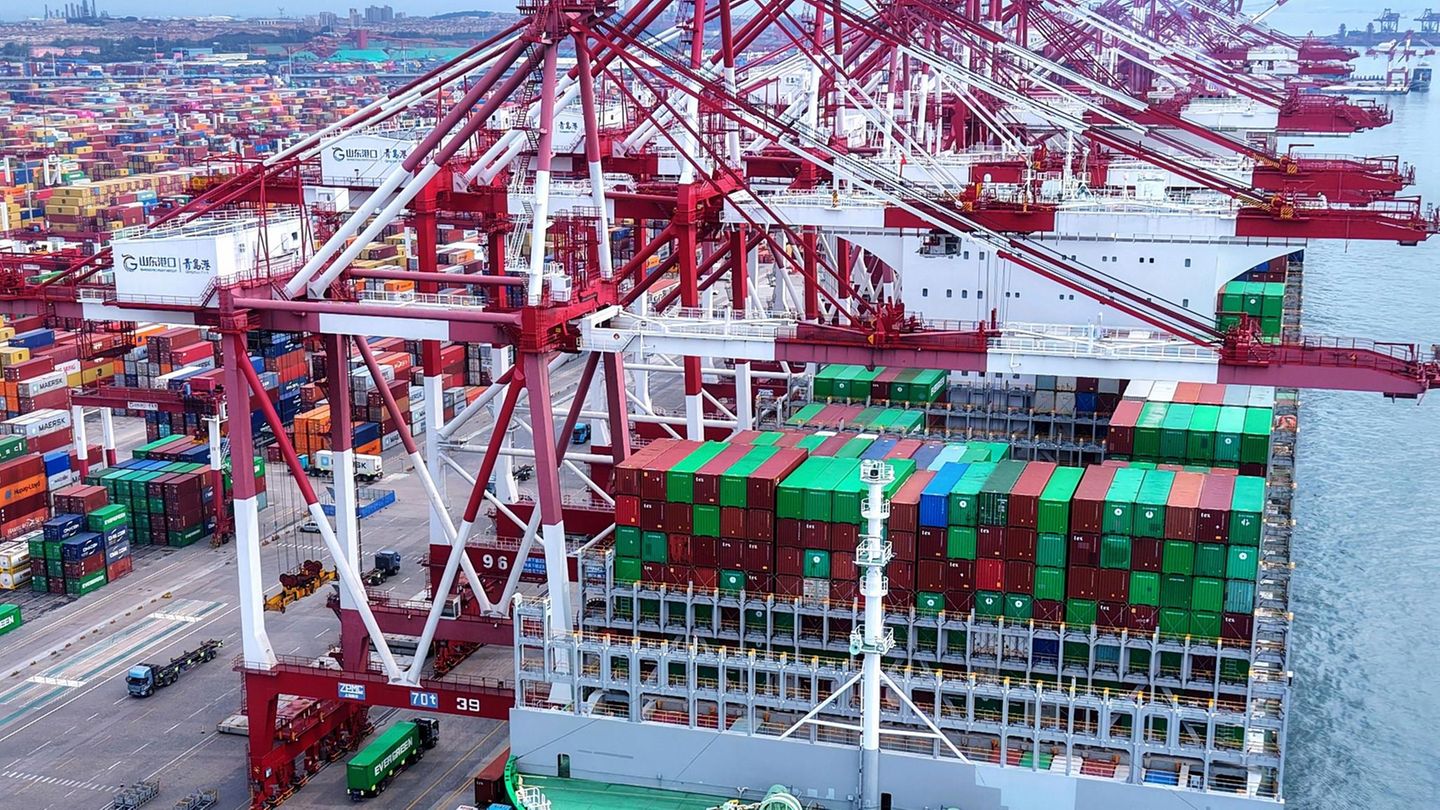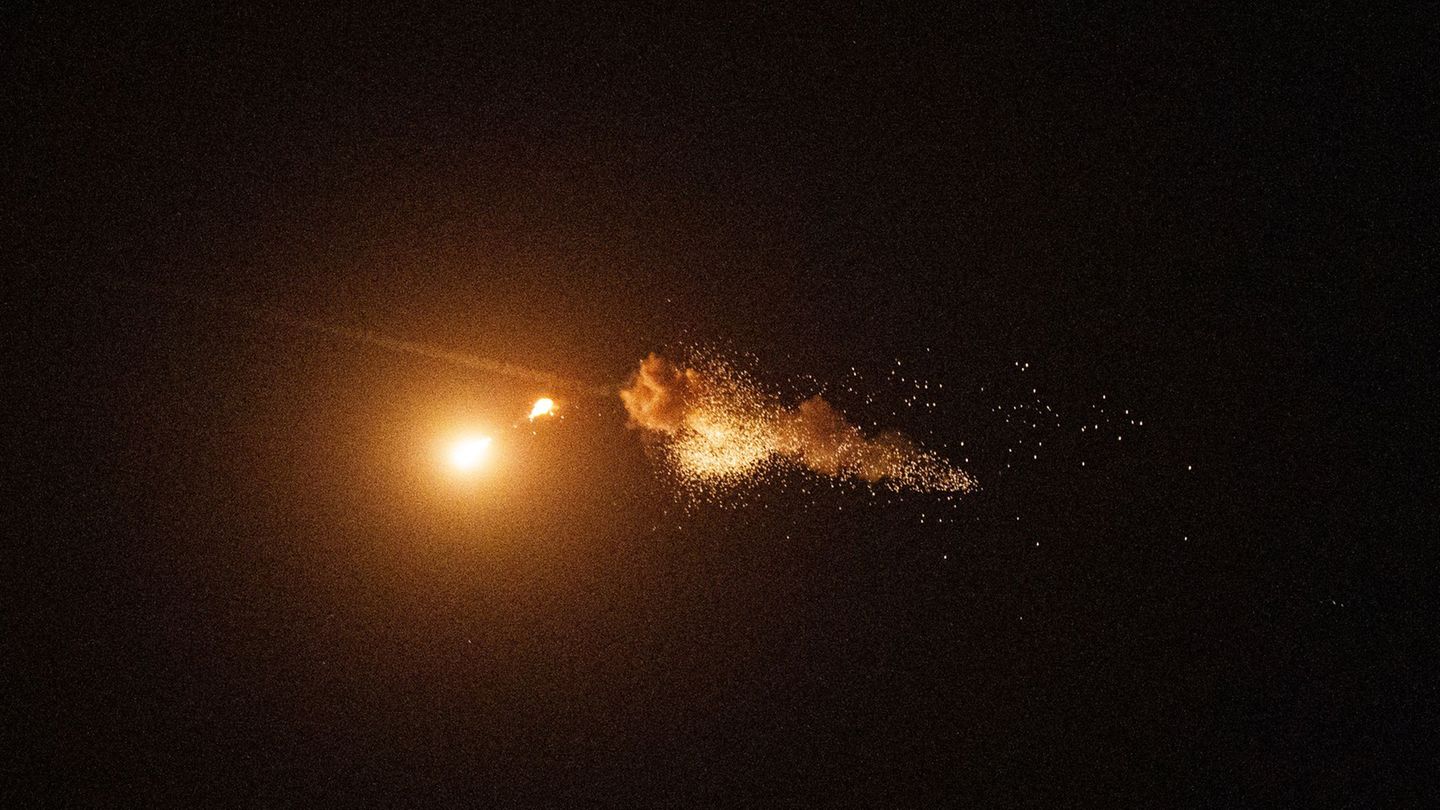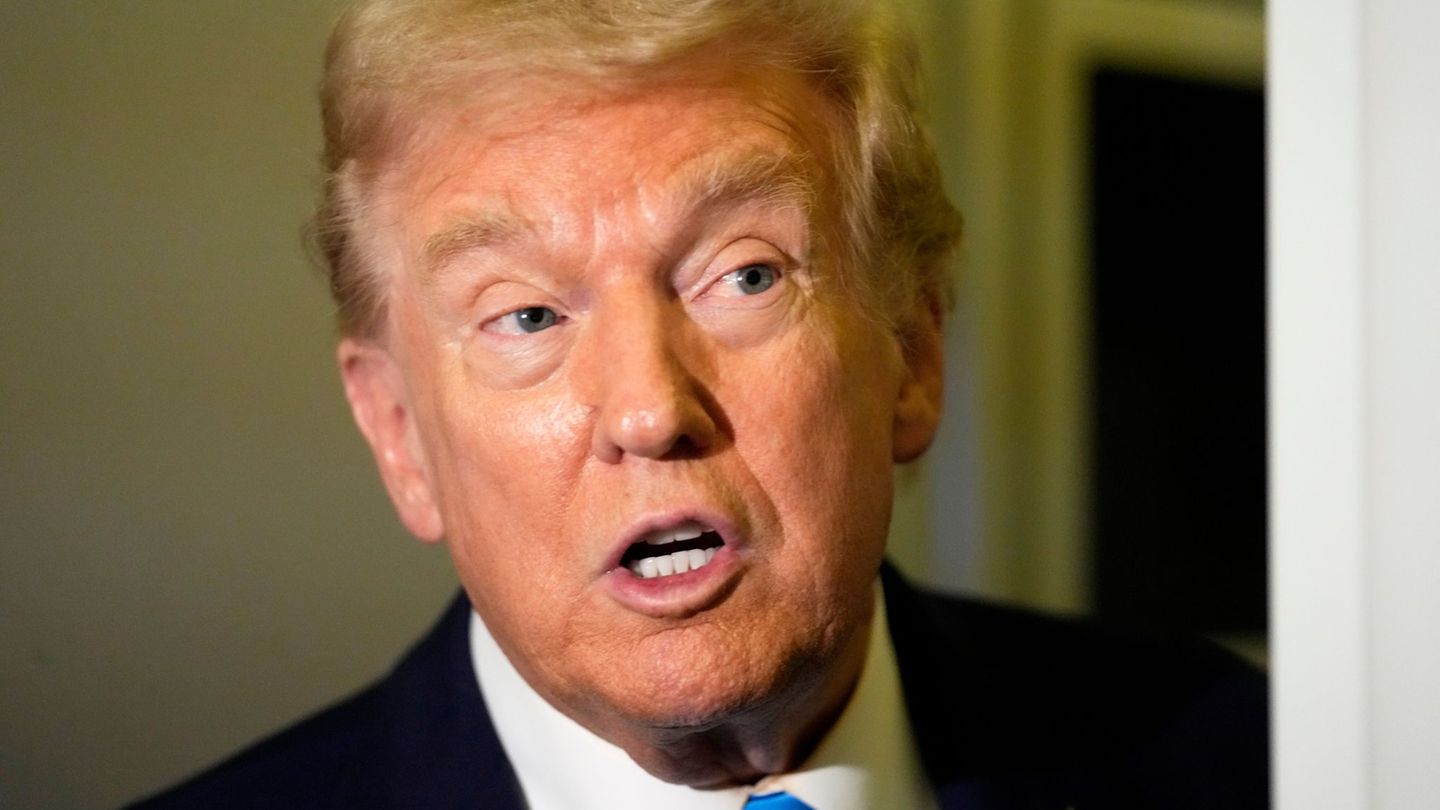Trade war
China and the USA are exposing new mutual tariffs for 90 days
Copy the current link
Add to the memorial list
The United States continues to expose its increased tariffs to Chinese imports. This now applies until November 10th. China also pulls along.
A few hours before the break expired in the customs dispute between China and the USA, US President Donald Trump extended the deadline by another 90 days. “I have just signed a decree with which the suspension of the tariffs for China is extended for another 90 days,” Trump wrote on Monday (local time) in his online service Truth Social. “All other elements of the agreement remain unchanged,” added the president.
China takes important steps “to accommodate the concerns of the United States in relation to economic and national security,” said the decree published by Truth. He considers it “necessary and appropriate” to continue to maintain the break until November 10, Trump explained.
Trump confirmed previous reports from the “Wall Street Journal” and the CNBC broadcaster to sign such a decre. The US President had previously praised the “pretty good” negotiations with Beijing.
China also shifts tariffs
After the United States has postponed the introduction of its threatened tariffs against China by another 90 days, China also exposes tariffs to US goods for 90 days. As the Chinese Ministry of Commerce announces, China will leave its tariffs on US goods at ten percent and take measures to eliminate non-tariff barriers to American products.
Since April, the United States has gradually increased the import duties on Chinese goods up to 145 percent. China reacted to strategically important raw materials with counter -tariffs of up to 125 percent and imposed export controls. In May, both sides in Geneva agreed on a 90-day suspension of the new tariffs. Further talks in London followed in June. This agreement should expire this Tuesday. Most recently, high-ranking representatives of the US government had spoken out for a possible extension of the deadline.
At the end of July, delegations of the two largest economies in the world in Stockholm came together for new discussions about their customs conflict – but with no result. At that time, both sides left open after two -day trade talks whether the break would be extended again. The break so far would have expired this Tuesday.
The extension now announced avoids an escalation of the trade disputes. At a later point in time, President Trump and XI Jinping could meet. A direct conversation between the two heads of state is crucial in order to infect political guidelines beyond technical details.
Dispute between China and the USA is not just about tariffs itself
The tensions between the two countries go far beyond the question of tariffs. Beijing criticizes US export controls for semiconductors and AI chips that make Chinese companies access to modern technology. Washington, in turn, accuses China of specifically holding certain raw materials back.
It was only on Monday that Trump had confirmed media reports that the US government received a share of 15 percent in sales of AI chips from American corporations Nvidia and AMD to China. He said that he initially asked Nvidia boss Jensen Huang even 20 percent-“for the country”.
Which states meet the tariffs the most

Syria: 41 percent
After years of war, a good 24 million people still live in Syria. The country primarily exports animal and herbal fats and oils, fruit and nuts as well as vegetables and plants – in the USA this is now 41 percent more expensive
© Omar Sanadiki / AP / dpa
More
Open the image subtitle
Back
Further
Despite the hard tones, both governments recently broadcast signals. China was open to progress. In an editorial of the state “Volkszeitung”, the communist party’s mouthpiece, it was said that Beijing was ready to make substantial progress with Washington. China continues to rely on a constructive dialogue.
Unlike many other states, China reacted to the punitive tariffs introduced by the United States under Trump with immediate counter -oils from the start. Beijing waived one -sided concessions and instead consistently relied on corresponding retaliation.
AFP · dpa · Reuters
RW
Source: Stern
I have been working in the news industry for over 6 years, first as a reporter and now as an editor. I have covered politics extensively, and my work has appeared in major newspapers and online news outlets around the world. In addition to my writing, I also contribute regularly to 24 Hours World.




